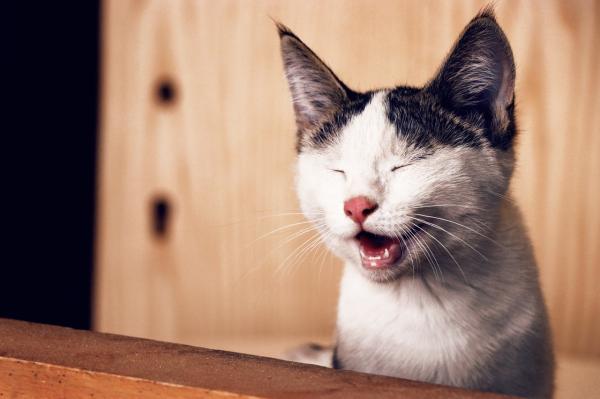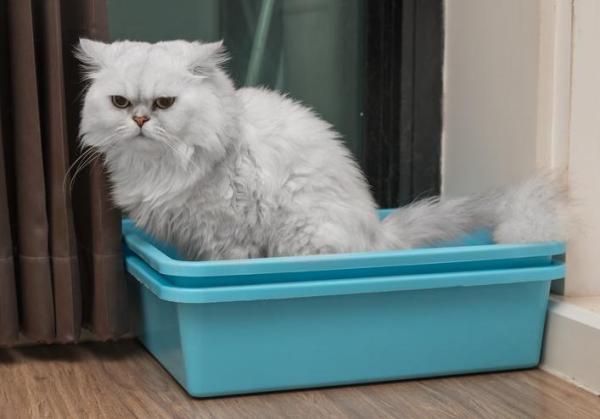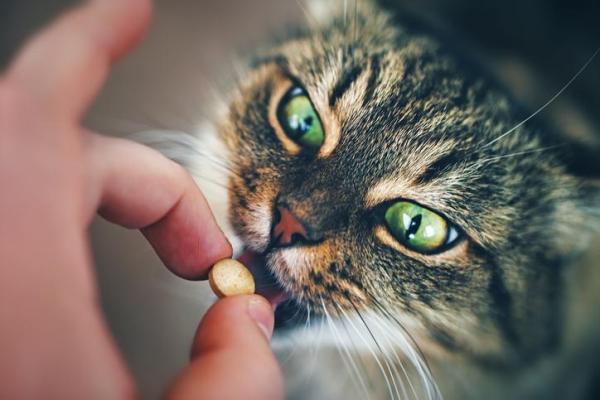Diet for Cats with Kidney Stones



See files for Cats
Although we may carefully monitor our cat's diet, it is still possible for problems to occur in their digestive system. Kidney stones are one such problem, usually resulting in a blocked ureter. According to the University of Illinois Veterinary Teaching Hospital, a blocked ureter can be a common problem in cats[1]. There are various causes of kidney stones in cats, but diet is a contributing factor, particularly as cats eat a high amount of animal protein. While diet might be partly at fault, it can also help to resolve the problem and to prevent it happening again in the future.
AnimalWised not only discusses the best diet for cats with kidney stones, we also provide background on kidney stone disease including its detection and treatment.
Types of kidney stones in cats
There are various forms of kidney disease in cats, but kidney stones (known as a calculus) will not necessarily cause permanent damage. They are, however, incredibly painful and can lead to complications if they are accompanied by a bacterial infection which can lead to sepsis[2]. The ‘stones’ themselves are actually crystals formed by different chemicals in the urinary tract of the cat and are a part of a larger group of diseases known as Feline Lower Urinary Tract Disease (FLUTD).
Cats can produce kidney stones which are expelled naturally by the body. They may form in the kidney and are then passed on to the bladder where they are expelled through urination. The calculus causes problems when it is too large to pass through the urinary tract. If they are large enough they will cause partial or total obstruction which is both painful and dangerous.
During the formation of the deposits, the pH value of the urine is very important since it will influence how alkaline or acidic is their urine. Similarly, the stones are classified according to their composition. They will depend on the diet of the individual cat, but the two most common are:
- Struvite stones: the most common type of feline kidney calculi, they are formed by ammonium phosphate and magnesium in urine with high alkalinity. This occurs most commonly after a urinary tract infection, since crystals can form around the bacteria. They can also occur in younger cats.
- Calcium oxalate stones: formed in acidic urine, they occur due to a high concentration of calcium in the urine.
Symptoms of kidney stones in cats
The scientific term for the development of stones in ay part of the urinary tract is urolithiasis. Some breeds are predisposed to the condition, including Persian, Himalayan and Burmese cats[3]. Male cats are also more likely to develop problematic kidney stones due to having a narrower ureter, especially those which have been neutered. Symptoms of kidney stones in cats include:
- Using the litter box more than usual
- Urinating outside of their litter box
- Vocalizing pain
- Licking of the genital area
- Hematuria (blood in the urine)
If any of these symptoms present, it is reason enough to take the cat to the vet. This veterinary consultation will be able to establish a diagnosis, treatment plan and, if appropriate, diet for cats with kidney stones.

Detecting kidney stones in cats
Although it is sometimes possible to feel larger stones located in the bladder through physical examination alone, most stones will not be detected though this method. They are most commonly and accurately discovered through X-rays or an ultrasound. Urinalysis will also likely be performed to discover the chemical composition of the urine.
The cat may be able to expel the stones spontaneously, but others may require surgical extraction. It may be difficult to determine if your cat has expelled some stones if they are small and deposited into the kitty litter. However, whether deposited naturally or extracted, the kidney stone will need to be examined. This is so that its composition can be determined and treatment can be established. This is important in terms of establishing a diet for cats with kidney stones.
Treatment of kidney stones in cats
Diagnosing kidney stones in cats will also entail making sure there are no concurrent pathologies or complications. One of the most common is a urinary tract infection which will need to be treated by antibiotics. Treatment of the calculi themselves will depend on their composition. Following the proper diet for a few weeks or months, the stones may be dissolved and will pass on their own.
For stones which cannot be naturally eliminated, surgical intervention will most likely need to be implemented. Surgical treatment will also be necessary for this which have reached further into the urinary tract, likely necessitating an emergency. Once a cat has had kidney stones, they will have a higher probability of developing them again. Hydrotherapy (known as urohydropropulsion[4]) may also be used to get rid of kidney stone fragments which may make future stones more likely.

Diet for cats with kidney stones
As we state above, the diet for a cat with kidney stones will depend on the type of stone they have. There are some products for sale in veterinary clinics specially formulated for the dissolution of stones. These specially formulated types of feed come in both dry and wet varieties, the latter coming in cans or sachets. The latter is usually recommended as it increased hydration and, therefore, the amount of urine produced. This favors the elimination of kidney stones.
In addition to the proper diet recommended by our veterinarian, it is essential the cat increases its water intake in general. To achieve this end, we can place more drinking bowls throughout the home, replenish the bowls with fresh water more often and even install a drinking fountain as this encourages water intake. Unfortunately, calcium oxalate kidney stones are both the most common and the most difficult to remove. They won't be expelled through diet and increased fluids alone.
Homemade diet for cats with kidney stones
There is specially formulated food for cats with kidney disease which is specially formulated. This should be able to help with passing of struvite kidney stones and may even be something you will want to keep them on permanently. This is the case with chronic kidney disease in cats. However, you may want to consider making a homemade diet to fulfill the same purpose. Regardless of using commercially bought or homemade food, you will first need to achieve a diagnosis from your vet for the best treatment options.
If you do choose to make homemade food for cats with kidney stones, you should consider the following:
- If we have to destroy a struvite calculus in the urinary tract, the foods required to do so will need to be low in magnesium, phosphorous and protein. Among foods rich in magnesium which we should avoid are sardines, brown rice, rabbit and fish such as salmon and tuna. Foods rich in phosphorous to be avoided include salmon, sardines, egg and red meat.
- As for calcium oxalate kidney stones, they cannot be eliminated through diet. You can, however, use diet to prevent the formation of more. We recommend a moist diet. You can prepare dishes which incorporate extra water to increase hydration. Avoid diets low in phosphorous (see above), vitamin B6 and protein, while providing more vitamin D.
- Adding polyunsaturated fatty acids to their food will also reduce the likelihood of forming stones. Food for cats with kidney stones should be rich in omega 3 and 6. You can find these acids in dietary supplements for cats. You should always consult your veterinarian before including such supplements to your cat's diet.
- It is advisable to provide your cat's food at more regular increments throughout the day until the stones are passed.
It is important to stress that a diet for cats with kidney stones is part of their treatment and is just as important as medicine would be for another disease. For this reason, it can be complicated to make a homemade diet for cats with kidney stones. Your veterinarian will be able to provide specialized nutrition information to help solve the problem and commercial food of high quality will ensure the nutritional needs are met. If the cat still rejects this, you can try warming the food slightly to encourage appetite. Take the cat to the vet if they still refuse to eat.

This article is purely informative. AnimalWised does not have the authority to prescribe any veterinary treatment or create a diagnosis. We invite you to take your pet to the veterinarian if they are suffering from any condition or pain.
If you want to read similar articles to Diet for Cats with Kidney Stones, we recommend you visit our Reproductive system diseases category.
- Real, Llibertat. Manejo nutricional de la urolitiasis en gatos. Ateuves 56, págs. 12-16.








